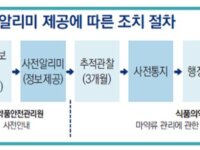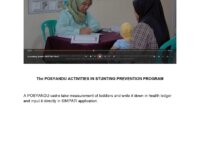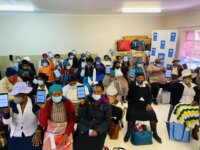Starting a family is a major milestone in life. It also requires public service support. In Iceland, parents have the legal right to take leave and receive benefits, which allows them the time to take care of and bond with their babies. Having a baby can be stressful, and time should not be wasted on paperwork or bureaucracy. The digital application for parental leave automises the process and makes the processes simpler, faster and more user friendly. 90% of parents in Iceland currently prefer…
Innovation Tag: Data
UNDP has introduced a digital system that allows better reporting of public health data in rural communities in Lesotho. It consists of tablets and software designed to fit the needs of Village Health Workers, the Ministry of Health unit that collects the data, whose staff has low digital literacy. The initiative led to increased reporting frequencies (essential for monitoring fast-moving epidemics) and reduced costs; as a side effect, it increased the rates of digital literacy of the personnel.
Case Study
Digitalized Real-Time Narcotics Vigilance: Agile Monitoring & Pre-notification Surveillance of…

As the overuse and misuse of narcotics pose a global public health threat, the Korean governance has developed a smart, digitalized real-time monitoring system for narcotics safety management. By utilizing this state-of-the-art technology, the government can analyze prescriptions, track patterns, and alert doctors to prevent the overuse and misuse of narcotics.
Statistics Poland has launched Public Services Monitoring System to provide local government units, entrepreneurs and community with the information necessary for a comprehensive assessment of services provided at the local level. Previously entities responsible for providing these services did not have access to data for supporting decision-making processes, as well as to monitor changes to improve the quality of services at the municipal level.
Tawakkalna Services is a digital super-app which was created to simplify and enhance daily life of individuals in Saudi Arabia. It modernizes service delivery and benefits over 31 million users by providing a unified access point for diverse services, from healthcare to civil affairs. Its innovation lies in creating a unified digital ecosystem of public and private offerings, reflecting a bold step in digital integration aligned with Saudi Vision 2030.
The Hub for Advisory, Finance and Investment for Enterprises (HAFIZ - Arabic word حافز for incentive) is an AI-powered integrated portal by Egypt’s Ministry of International Cooperation and works as a one-stop hub to avail to the private sector: (1) financial instruments (e.g. equity, debt, trade finance, insurance, guarantees, grants, etc.); (2) technical assistance services; and (3) knowledge products by international development partners.
Case Study
SIMPATI (Sistem Informasi Pencegahan Stunting Terintegrasi – Integrated Stunting Prevention…

The Local Government of Sumedang Regency, Indonesia has developed a new platform, ‘SIMPATI (Sistem Informasi Pencegahan Stunting Terintegrasi - Integrated Stunting Prevention Information System)’, as a tool to collect real-time data to make stunting reduction programs more effective and integrated. Through the SIMPATI platform, the government has a way of improving stunting reduction program, increasing stunting data management, and decreasing the stunting rate to solve the problem.
The Sola calculation tool allows estimate the economic impact of 25 distinct social phenomena at municipal, regional and national level. Impact assessments at one, five and ten year intervals can lead decision-makers to better understand how to invest in wellbeing and accelerate impact investing. Results of the tool have been used in several municipalities as part of health and wellbeing promotion. A MOOC course has been developed and similar calculation tools are recently being used in other…
DCCEEW partnered with the CSIRO to develop a novel approach to track social licence for the energy transition. A valid and reliable survey instrument was designed and deployed to measure Australian attitudes and behavioural intentions towards the energy transition. As the energy transition has been met with concern from communities, results from this survey are key to developing evidence-base policy, and to bassline and track social licence to ensure a speedy and just energy transition.
Case Study
Osaamistarvekompassi: Tackling Skills Mismatch through AI-assisted Skills Needs Anticipation

The Service Centre for Continuous Learning and Employment (SECLE) was established to anticipate the skills needed in working life and to fund competence services to proactively improve the matching of skills and jobs. SECLE’s new online service, Osaamistarvekompassi (Skills Needs Compass), provides anticipatory data on job transitions, along with insights on near-future skills needs derived from AI-assisted data mining, in a user-oriented way. The service guides the allocation of SECLE’s…


